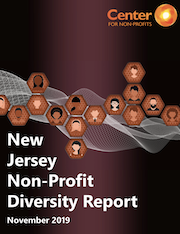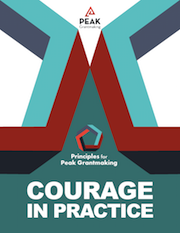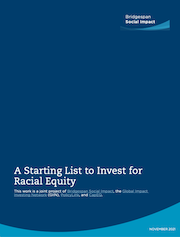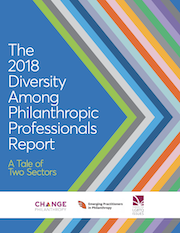Site Search
- resource provided by the Forum Network Knowledgebase.
Search Tip: Search with " " to find exact matches.
Wells Fargo is making good on its promise to help underserved communities.
On Monday, the bank announced it is giving a grant of $1 million to the Trenton Regional Business Assistance Corp. and a grant of $500,000 to the Camden-based Cooperative Business Assistance Corp. The grants are part of the Wells Fargo Open for Business Fund, which was created last year.
The organizations will use the grants to provide low-interest loans to small businesses that — for a variety of reasons — lacked the access to such capital.
Tomas Porturas, vice president of social impact and sustainability, said Wells Fargo hopes the funding will help underserved small businesses in Trenton and South Jersey stay open and preserve jobs through short- and long-term COVID-19 resiliency efforts. It also will expand microlending activities and programming for diverse business owners.
“Wells Fargo’s Open for Business Fund is another avenue of support and enlists the expertise of our CDFI partners to urgently help diverse South Jersey entrepreneurs recover and preserve the jobs they provide in their communities,” he said. “The funding will provide much-needed access to capital with increased equity in resources and technical assistance for local businesses, which are the backbone of our local economies and neighborhoods.”
The New Jersey State Council on the Arts yesterday awarded more than $30 million in grants to support approximately 900 arts organizations, projects, and artists throughout the state. The grants were approved at the Council's 58th Annual Meeting in Trenton, which featured a special musical performance by Hector Morales, a 2024 Arts Council Heritage Fellow.
State funding for the Arts Council comes from the revenue generated through the State’s Hotel/Motel Occupancy Fee, and supports arts activity in all 21 counties. From the smallest neighborhoods to the largest cities, artists and arts organizations strengthen communities and offer solutions for complex issues we all care about – quality education, health and wellness, thriving economies, cross-cultural understanding, and more.
“The investment made in our state’s artists and organizations has a direct, positive impact on New Jersey residents, families, businesses, and communities,” said Acting Governor Tahesha Way, who oversees the Council in her role as Secretary of State. “It’s an honor to work closely with the Council to help our state’s creative industries thrive, and to ensure New Jersey’s diverse constituencies can access the many benefits of the arts.”

This brief from Grantmakers Concerned with Immigrants and Refugees (GCIR), a network of local, state, and national funders who seek to leverage their grantmaking to expand opportunities for and address challenges facing immigrants, refugees, and their communities, considers the implications of the 'public charge' rule and how philanthropy can mount an effective immediate and long-term response.
"No one should have to choose between their family’s health and safety and their future. Yet the Trump administration is advancing a set of regulatory and other administrative changes that would force immigrant residents to choose between using public programs to meet fundamental needs, like food and health care, and their ability to continue their lives in the United States."

Many in our sector are talking about big ideas such as equity and inclusion, narrowing the power gap in our sector, being authentically engaged in our communities, listening and learning from our partners, and living our values in our practice.
We can help the sector move beyond conversation to action.
We believe our members have the power to bring tangible, real-life, and practical implementation to these big ideas to build a bridge between strategic vision and action. To this end, we support their professional growth through developing the competencies that will help them lead this change.
The effects of COVID-19 continue to be felt all around New Jersey. In order to dig deeper into the impact of the pandemic on certain communities and stay connected during this difficult time, CNJG worked with our affinity group chairs and other members to develop programming that supplemented our COVID-19 Funders Briefing Series and Newark COVID-19 Series. These virtual affinity and interest group meetings were designed for colleagues to update each other on coronavirus response efforts, hear about the greatest needs in their funding area, and share what they have learned. CNJG members can access the recordings of these past meetings to hear what was said.
The New Jersey Council for the Humanities (NJCH) recently awarded $202,840 in Incubation and Action Grant funding to fifteen organizations. Incubation Grants help organizations plan, research, develop, and prototype public humanities projects and events. Action Grants help organizations implement a wide array of humanities-based projects, including public programs, exhibitions, installations, tours, and discussion groups.
Public humanities programming allows individuals to engage in lifelong learning and share in the exploration of history, values, cultures, and beliefs. NJCH supports and acts as a resource for cultural and service-oriented nonprofit partners as they bring the public humanities to the residents of New Jersey, harnessing the power of the humanities to strengthen communities.
The New Jersey State Council on the Arts awarded more than $28 million in grants to support over 700 arts organizations, projects, and artists throughout the state. The grants were approved earlier today at the Arts Council's 56th Annual Meeting.
“It has been an honor to witness the ongoing dedication and boundless creativity of our state’s arts sector,” said Secretary of State Tahesha Way. “I am proud to work closely with the State Arts Council as they grow and innovate, finding new ways to best serve the artists, arts workers, and organizations that continue to engage and inspire communities throughout the state.
NJM Insurance Group is donating $100,000 to benefit hunger relief organizations throughout the mid-Atlantic region, including 12 in New Jersey, the company announced Wednesday.
CEO Mitch Livingston said NJM’s support of communities is rooted in a culture of purpose-driven service.
“Households across the country lack consistent access to food,” he said. “NJM is proud to help advance the vital efforts undertaken by nonprofit organizations — large and small — to help alleviate food insecurity.”
Join us for this Health & Aging Affinity Group meeting, a unique opportunity for New Jersey-based funders to connect and share insights on initiatives and strategies related to health and aging. This engaging event will provide a platform for networking, knowledge exchange, and fostering potential partnerships among organizations dedicated to improving the well-being and quality of life for families in our communities. Let's come together to explore innovative solutions, share best practices, and build a stronger, more impactful funding network in the realm of health and aging.
Cost: Free for CNJG Members; $50 for Non Member Grantmakers

This work is a joint project of Bridgespan Social Impact, the Global Impact Investing Network (GIIN), PolicyLink, and CapEQ.
Since the social unrest over racial injustice in the summer of 2020, philanthropists, corporations, and impact investors across the United States pledged to invest billions of dollars to advance racial equity. However, recent scrutiny of those commitments reveals that the majority of those dollars remain on the sidelines.
A common hypothesis for the shortfall is the lack of investable “shovel-ready” opportunities. But Bridgespan Social Impact has formally and informally advised organizations seeking to invest for racial equity over the years, and found that hypothesis to be patently untrue. To make the case, Bridgespan is publishing this list of racial-equity funds that emerged from our experience, at the request of multiple funds and potential investors, and alongside the launch of a new racial-equity theme in the IRIS+ family of impact measurement and management guides. It comprises more than 160 funds that explicitly seek to improve the livelihoods of individuals who are Black, Indigenous, and people of color (BIPOC) and their communities. And we’re not done yet.
What is racial-equity investing?
In putting together this list, we chose to characterize “racial-equity investing” as directing capital toward creating equitable opportunities for BIPOC individuals and communities. That often requires shifting decision-making power and redefining risk so that capital flows more freely in service of those opportunities.
Sourcing these funds, we uncovered dozens of creative financing vehicles aimed at building power, creating economic opportunity, and improving livelihoods for communities of color.

